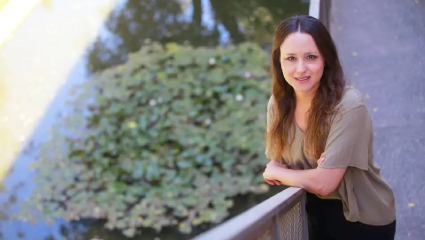Consuelo Araos, a researcher at the Signos UANDES Center, seeks to understand the changes in household formation.
With the objective of understanding the socioeconomic, demographic, and cultural challenges faced by young adults in Chile, Consuelo Araos,a researcher at the Signos UANDES Center, is carrying out the project "Oikonomías in Motion: Local Institutional Contexts and Household Formation Processes among Young Lower-Middle-Class Chileam Adults in Two Santiago Neighborhoods."
This research seeks to understand changes in household formation, a phenomenon that has become less defined and moves away from the traditional nuclear household model. "Younger generations are delaying or not reaching important milestones such as finding a job, finding a long-term partner, getting married, and having children, which has led to an increase in the number of complex households, such as those formed by young adults living with their parents," explains Consuelo Araos.
The researcher was awarded a grant from the FAI Priority Thematic Areas Competition (ATP) from the Directorate of Research of Universidad de los Andes. The dean of the School of Social Sciences at UANDES, Matias Petersen, is participating as a co-investigator in this interdisciplinary project. He will contribute theoretical elements from institutional economics to understand how local institutional contexts interact with the processes of household formation in lower-middle-class sectors, opening new perspectives on the formation of domestic units and the decisions of the new generations in this area.
The study focuses on young people between the ages of 18 and 34 and compares two Santiago neighborhoods, revealing which offers better access to local urban services.
Younger generations are delaying or not reaching important milestones such as finding a job, finding a long-term partner, getting married, and having children, which has led to an increase in the number of complex households, such as those formed by young adults living with their parents.
Consuelo Araos,
FAI Competition Priority Thematic Areas
This call seeks to promote joint work among experts from different disciplines and academic units, strengthening associativity and the formation of interdisciplinary teams to generate scientific knowledge in the following priority areas:
1. Family: marriage, work-raising balance.
2. Life and human dignity: health and rights.
3. Religion: religious freedom and universities with a specific mission.
4. Education: challenges, threats, and perspectives.
5. Contemporary Chile: historical, sociological, and political approaches.
"This research highlights the importance of interdisciplinarity and has the potential to influence public policies for inclusive and equitable development," adds Claudia Brizuela, Director of Research at UANDES.

